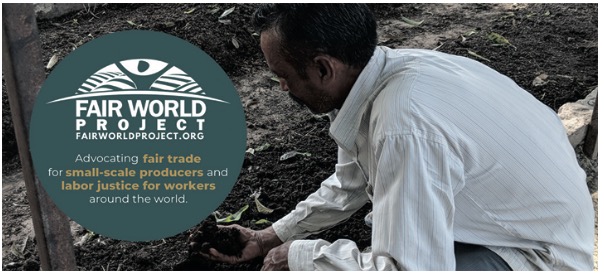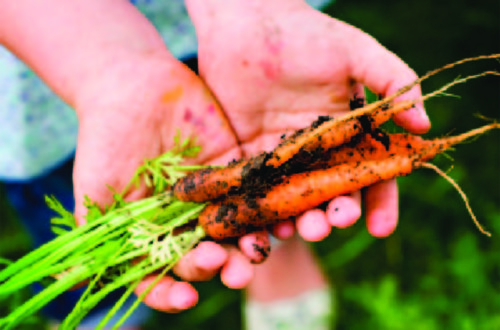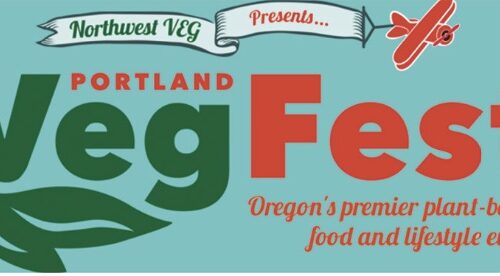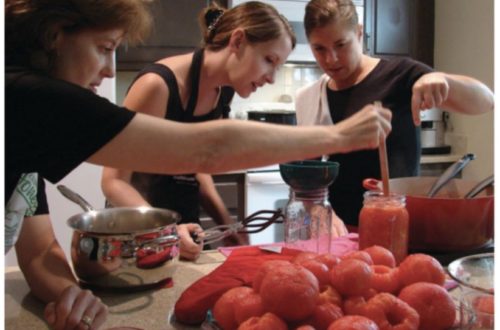Regenetarians United Can Change the World
“The whole world is a garden, and what a wonderful place it would be if we each took care of our part of the Earth, our garden.” ~Voltaire
As eaters, we are all farmers deciding what kind of farming system exists in the world that feeds us: our plate is our farm, our fork our pitchfork, our knife our slaughtering knife. One- third of the Earth’s surface is covered in arable farm and range- lands. Regenerative practices can restore soil health and organic matter relatively quickly, within five to ten years. If we each take responsibility for our section of the garden as consumers, at a global scale we can make a significant impact on mitigating climate change, drawing back down atmospheric carbon previ- ously lost from soil, and sequestering it as stable organic matter.
Do we choose to buy from organic farms that grow our food regeneratively? Do we eat less and much better meat, dairy, and eggs from pastured animals? Or do we default to the unconscious and unsustainable machine? We can’t control everybody else, but we can control what kind of food we put in our mouths from our extended farm, our extended garden. We either choose sustainable, humane farming that respects animal life and integrates with natural ecosystems, or the insanely cruel industrial ag machine that feeds carbon-intensive grain to animals in cages while shredding ecosystems and driving us over the climate change cliff. Dietary choice can be healthy and regenerative, or unhealthy and degenerative, whether omnivore or vegan; the key is if we eat less/better animal products and whether our choice regenerates topsoil or not. I believe it is imperative that all regenetarians consider the following three principles:
- Regenetarian omnivores and vegetarians are willing to spend more for, and eat less of, meat, dairy, and eggs, sourced only from correctly pastured and fed animals.
- A boycott of “bad meat” is a hallmark of the regenetarian ethos. Animals raised in confined animal feeding operations (CAFOs) fed conventional carbon/water-intensive grain is an environmental and ethical disaster, inefficiently convert- ing plant into animal protein and calories, especially in the case of feedlot (vs. grass-fed) beef.
- Regenetarian vegans are committed to eating regenerative organic grains, legumes, and vegetables, and modeling the discipline for their regen omnivore comrades to say no to bad meat. The scale of death that attends overuse of synthetic pesticides and fertilizers on non-target wildlife in conventional cropping systems makes eating regeneratively a vegan imperative.
Ultimately, we, the eaters, are the ones who feed the machine. We should take responsibility to rebalance the cycle of life and death in the natural world, reenter the natural rhythms and connection with the Earth, and make sure our dietary choices are sustainable and building healthy soil.
David Bronner is the Cosmic Engagement Officer (CEO) of Dr. Bronner’s, the top-selling brand of natural soaps in North America. David is a grandson of the company founder, Emanuel Bronner, and a fifth-generation soap maker. Under his leadership, and that of his brother, Michael, Dr. Bronner’s has been recognized as a sustainable leader in the natural products industry.
This article originally appeared in the For a Better World publication and was republished with permission from Fair World Project. Fair World Project is a nonprofit founded in 2010 to promote and protect fair trade principles and accuracy in labeling. Today, Fair World Project continues
this work by providing education and advocacy around issues of fair trade for small-scale farmers and artisans, and labor justice for workers around the world. Learn more about our work and get involved in campaigns to help keep fair trade claims meaningful at FairWorldProject.org.








6 Comments
Valinda Voogt
I have never heard of the term regenetarian but I love the concept behind it. I think it is very important to make people more aware of the impact they have on the environment through their food.
Holistic fish
While I dislike the idea that everything needs a label I truly believe and like the concept and feel it should become the norm
Holistic fish
While I don’t think that everything needs a label I definitely support this concept and believe it should become the norm !
Laura at Fairly Southern
I have never heard the term “regenetarian” before, but it pretty much describes what I choose for my own diet! Glad to know about this!
Eco Friendly Mama
This is the first I’ve heard of the term “regenetarian” but I love the concept and have discovered that I fit into this mold in many ways! While not a vegan, my son is a vegetarian so most of the meals I prepare for my family are meat-free. Thank you for sharing this concept. I am going to add the word to my vocabulary from now on. ☺️
Angela Ju
Thank you for posting. I think it’s important for people to realize that what they choose to eat actually does have an impact on others and the environment.